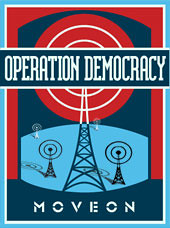On the Tenth Day of Christmas...
On the tenth day of Christmas
Bluenecks gave to me
Strong labor unions,
Tom Delay convicted,
Balance the budget,
Peace in Iraq,
Rove with a pink slip,
No domestic spying,
Better education,
An anti-torture law,
A budget with a heart,
And a rebuilt New Orleans.
It is obvious to the point of being a cliche that these days are tough times for big labor unions in America. Last month when General Motors announced massive layoffs and plant closings for the coming years (including the Saturn plant in Spring Hill, TN), it was seen by many as a sign of how the power of unions has crippled the American auto industry. A series on NPR's "All Things Considered" this week is exploring the changing life of American autoworkers and raises the question about how the union's insistence on high wages and expensive benefits packages has made the American car companies uncompetitive with their foreign counterparts. This week's strike by New York city transit workers is being spun by the mayor as a greedy standoff by well-paid employees who refuse to make any concessions during these tough economic times.
As usual, the real story is much more complex than the media often makes it appear. It is definitely true that the auto workers' union has sometimes been inflexible in adapting and changing to the rapidly-shifting nature of the global economy, and that has put their employers at a disadvantage. And corruption in the upper-ranks of union leadership is an age-old problem. But as yesterday's NPR story pointed out, the strength of the unions helped auto workers develop a decent standard of living which forces non-union car companies to lift wages in their own plants, like the Toyota factory in Georgetown, KY. And while the New York transit workers will inevitably have to compromise on their current position, it is also true that the Metropolitan Transit Authority is maintaining an almost $1 billion surplus, far too much to expect transit workers to make deep concessions in pay and benefits. As long as greedy corporate managers insist on unilaterally boosting profits by denying the needs of their employees, strong unions will be a necessary part of a just economy.
There are encouraging signs that unions are trying to grow and change with the times. The Change to Win coalition, an alliance of seven growing labor unions, is seeking to put less emphasis on rigid, bloated power structures within union leadership, and devote more resources toward organizing, especially in sectors of the economy that most need protection. The Service Employees Internation Union (SEIU) is a model union in this respect, and posted a major victory in recent weeks by organizing nearly five thousand janitors in the Houston area who work for minimum wage and no benefits. As David Moberg wrote earlier this year, these kinds of changes will strengthen the power of unions for lifting the standard of living for American workers across the economic spectrum.
What Bluenecks Can Do: Learn about SEIU's campaigns for workers' rights by visiting their Action Center on-line. Then voice your support for the Employee Free Choice Act, which removes many of the legal hurdles that make it difficult for employees like Houston's janitors to form unions and fight for better pay and conditions.



0 Comments:
Post a Comment
<< Home